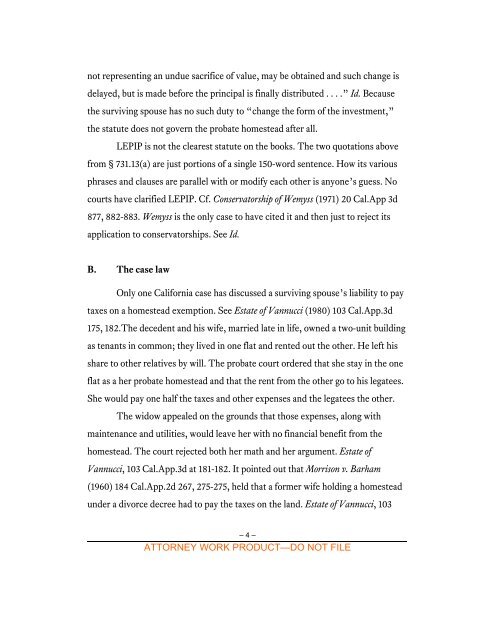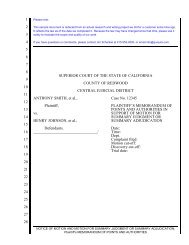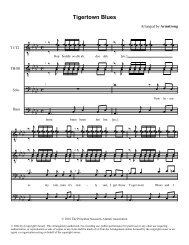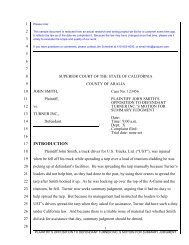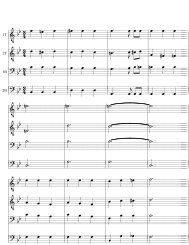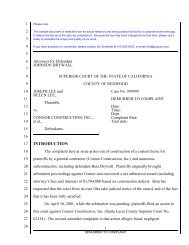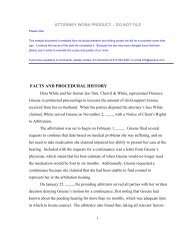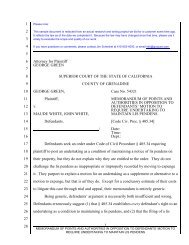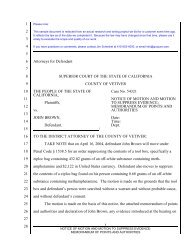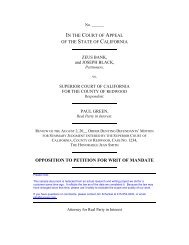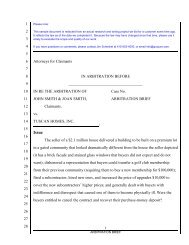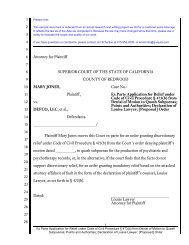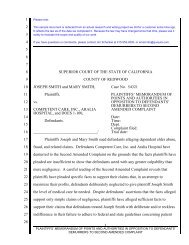Memo re probate issue - Quo Jure Corporation
Memo re probate issue - Quo Jure Corporation
Memo re probate issue - Quo Jure Corporation
You also want an ePaper? Increase the reach of your titles
YUMPU automatically turns print PDFs into web optimized ePapers that Google loves.
not <strong>re</strong>p<strong>re</strong>senting an undue sacrifice of value, may be obtained and such change is<br />
delayed, but is made befo<strong>re</strong> the principal is finally distributed . . . .” Id. Because<br />
the surviving spouse has no such duty to “change the form of the investment,”<br />
the statute does not govern the <strong>probate</strong> homestead after all.<br />
LEPIP is not the clea<strong>re</strong>st statute on the books. The two quotations above<br />
from § 731.13(a) a<strong>re</strong> just portions of a single 150-word sentence. How its various<br />
phrases and clauses a<strong>re</strong> parallel with or modify each other is anyone’s guess. No<br />
courts have clarified LEPIP. Cf. Conservatorship of Wemyss (1971) 20 Cal.App 3d<br />
877, 882-883. Wemyss is the only case to have cited it and then just to <strong>re</strong>ject its<br />
application to conservatorships. See Id.<br />
B. The case law<br />
Only one California case has discussed a surviving spouse’s liability to pay<br />
taxes on a homestead exemption. See Estate of Vannucci (1980) 103 Cal.App.3d<br />
175, 182.The decedent and his wife, married late in life, owned a two-unit building<br />
as tenants in common; they lived in one flat and <strong>re</strong>nted out the other. He left his<br />
sha<strong>re</strong> to other <strong>re</strong>latives by will. The <strong>probate</strong> court orde<strong>re</strong>d that she stay in the one<br />
flat as a her <strong>probate</strong> homestead and that the <strong>re</strong>nt from the other go to his legatees.<br />
She would pay one half the taxes and other expenses and the legatees the other.<br />
The widow appealed on the grounds that those expenses, along with<br />
maintenance and utilities, would leave her with no financial benefit from the<br />
homestead. The court <strong>re</strong>jected both her math and her argument. Estate of<br />
Vannucci, 103 Cal.App.3d at 181-182. It pointed out that Morrison v. Barham<br />
(1960) 184 Cal.App.2d 267, 275-275, held that a former wife holding a homestead<br />
under a divorce dec<strong>re</strong>e had to pay the taxes on the land. Estate of Vannucci, 103<br />
– 4 –<br />
ATTORNEY WORK PRODUCT—DO NOT FILE


